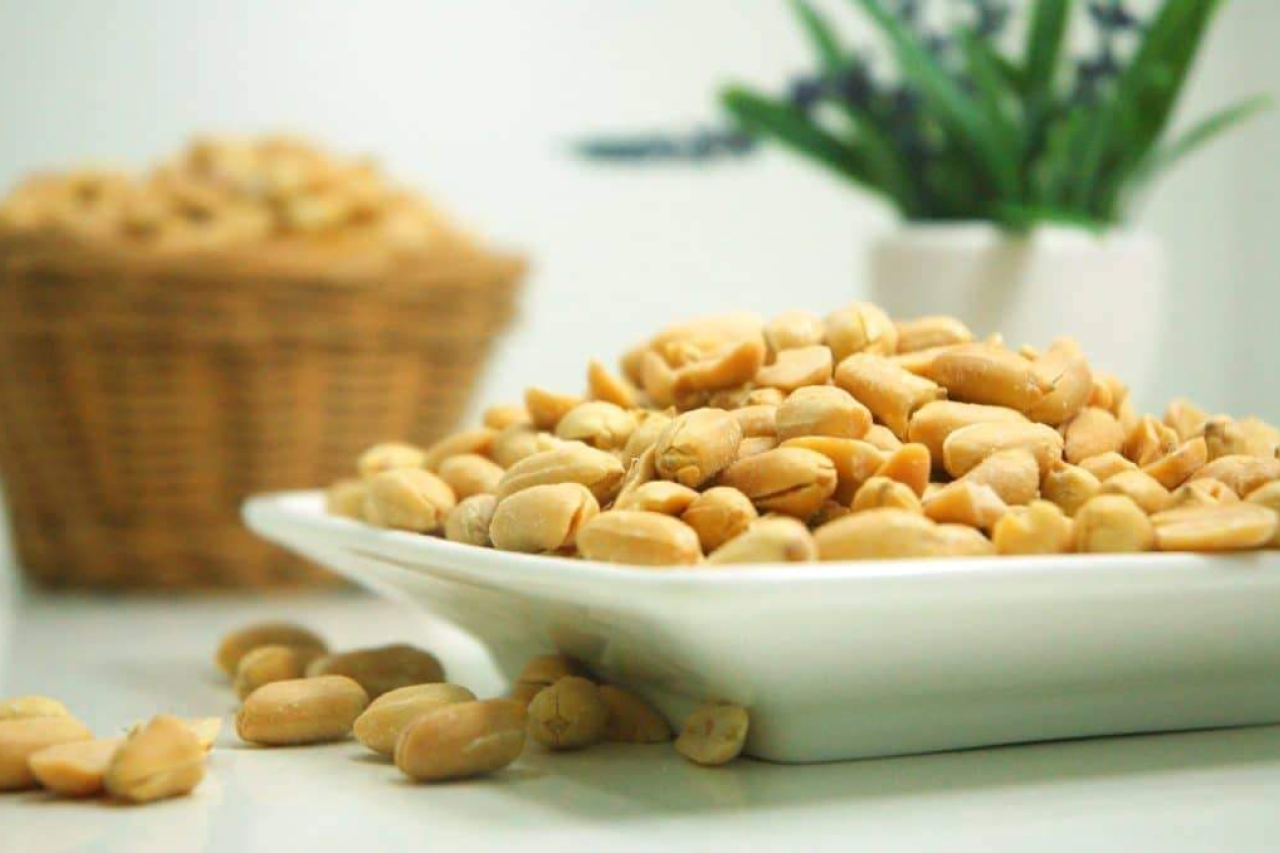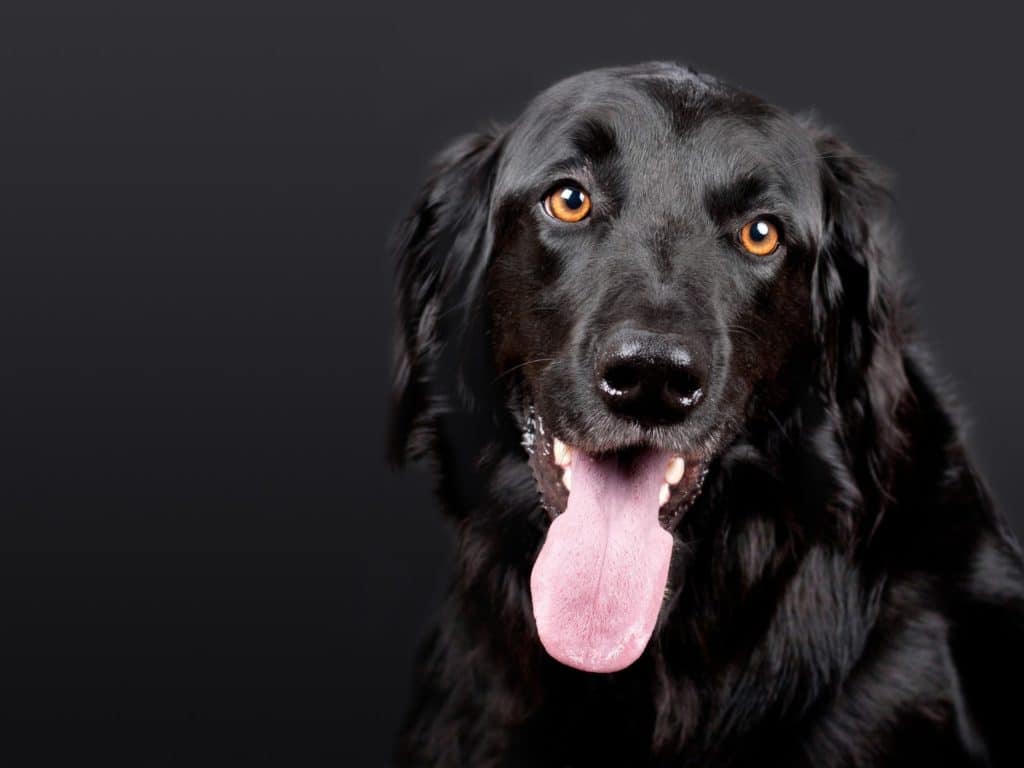
Can Dogs Eat Peanuts? Are They Good For Dogs?
Dog's got nuts (pun intended) for peanut butter, but are nuts good for them? For both humans and dogs, how the nuts are prepared goes a long way to determining their benefits and risks.
Peanuts are healthy for dogs for the same reason that they're healthy for humans: They're chock-full of valuable vitamins and minerals. Vitamins E and B6, protein, niacin, and healthy fats are the key players. Since peanut butter is made from, well ... peanuts, it can give your dog many of these same nutrients (especially protein).
Many dog parents use peanut butter as an easy way to give their pooch medicine in pill form. Since most dogs love the taste of peanut butter, it's useful for masking the taste of the medication. Of course, it’s best to check with your veterinarian before using peanut butter, since some medications aren’t meant to be given with food.
So, peanuts and peanut butter can offer dogs some benefits. But peanuts aren’t safe to give to your dog unless the peanuts are raw, unsalted, small enough, and have the shells removed.
Our Wild Earth Peanut Butter treats have all the benefits of peanuts without any of the issues. Dogs love the crunch, but they go down smooth (there we go again with the pun...).
Risks of Feeding Your Dog Peanuts
If you do feed your dog peanuts or peanut butter - that aren't our treats - here's what you want to consider.
Unsafe Added Ingredients
If you're eating peanuts as a snack, they're probably either salted or flavored. These added ingredients aren't good for your dog. If he or she ingests too much sodium from salted peanuts, a dangerous case of sodium ion poisoning could occur.
Artificial sweeteners added to peanuts can also be harmful, as dogs' systems aren't meant to process those chemicals. Those honey- or caramel-flavored peanuts might be delicious, but they're not safe for your four-legged friend.
When it comes to peanut butter, there is one reason why it might be extremely dangerous for your dog: xylitol. Xylitol is a sugar substitute that's now being used in hundreds of products, including many types of peanut butter. It's fine for humans to consume, but it's very toxic for pets.
Even small amounts of xylitol can cause a sudden drop in your dog's blood sugar level (a condition known as hypoglycemia) and cause side effects like disorientation, collapse, and seizures. Small dogs are at an even greater risk, because it takes even less of the toxic substance to start causing problems. If you plan on feeding your dog peanut butter, check the ingredients carefully to see if the product uses this dangerous artificial sweetener.
Choking Hazard
Peanuts themselves can be hard for your dog to chew and swallow, and some dogs will simply swallow them whole — this presents a choking hazard. Choking is even more likely if shells are left on the peanut. Plus, peanut shells are difficult for your dog's digestive system to handle.
If you give your dog peanuts, always remove the shells first. Dispose of them immediately so your dog doesn’t scarf them up while you’re not looking. Don't let your dog gobble the peanuts in rapid succession, because that increases the risk of choking.
Allergic Reaction
You probably know someone who suffers from a nut allergy, possibly even to peanuts themselves. Did you know that our canine companions can also have peanut allergies?
In dogs, a peanut allergy can range from mild to severe. The signs of an allergic reaction to peanuts include:
- Coughing
- Sneezing
- Hives
- Swelling, especially around the mouth and face
- Trouble breathing
If you see these symptoms in your dog after feeding them peanuts, don't give them any more, and call your veterinarian right away to find out what to do next. Mild reactions may simply be treated with an oral antihistamine like Benadryl, but anything more serious requires veterinary attention.
Other Dangerous Nuts
It turns out that of all nuts, peanuts are one of the safest for your dog — when they're plain, de-shelled, and don't contain additives or sweeteners, of course. Tree nuts such as walnuts, pistachios, almonds, and cashews can also cause allergic reactions in your dog. Walnuts, hickory nuts, and pecans can contain a dangerous mold that secretes mycotoxins, a big no-no for Fido. Macadamia nuts are one of the most dangerous nuts of all. The toxic agent in these nuts hasn't been definitively identified, but it's believed to be a neurotoxin. That means that a dog who eats macadamia nuts might suffer from lethargy, joint stiffness, hind-limb weakness, vomiting, and seizures. Avoid giving your pooch macadamia nuts at all costs.
How to Feed Your Dog Peanuts
We've seen that peanuts can offer your dog some valuable nutrition, but they also come with risks. So how do you go about feeding your dog peanuts safely?
First, always make sure the peanuts you're giving your dog are unsalted and unflavored, with the shells removed. To reduce the chance of choking, have your dog eat peanuts one at a time. And remember not to overdo it, since the high fat content in peanuts can cause pancreatitis when too many are eaten.
If your dog seems to develop side effects after eating peanuts, he or she may be allergic. Stop giving your dog peanuts right away and call your vet. If you want to give your dog peanut butter, always check the ingredients list. There are several common peanut butters on the market that contain xylitol.
Final Thoughts on feeding your dog peanuts
Here's the rule of thumb to follow when feeding peanuts to your dog: Offering an unsalted peanut as a treat is perfectly fine.
Peanut butter works as a tasty treat for dogs, as long as it's given in small quantities - or as a treat - and doesn't contain artificial sweeteners like xylitol.
Remember that some dogs are allergic to peanuts and other types of nuts, just like humans are. If you think your dog is having an adverse reaction after eating peanuts or peanut butter, call your vet right away.
Otherwise, feel free to give your dog the occasional plain peanut as a tasty snack. Your pooch will thank you.
Recommended Vitamin Supplements for Dogs
Why do dogs need supplements? Age, environment, pollutants, and the stressors of daily life can all lead to less than optimal health for your dog. We’ve created a family of supplements to provide support in the areas your dog needs it most. Learn about Wild Earth's dog supplements.




























